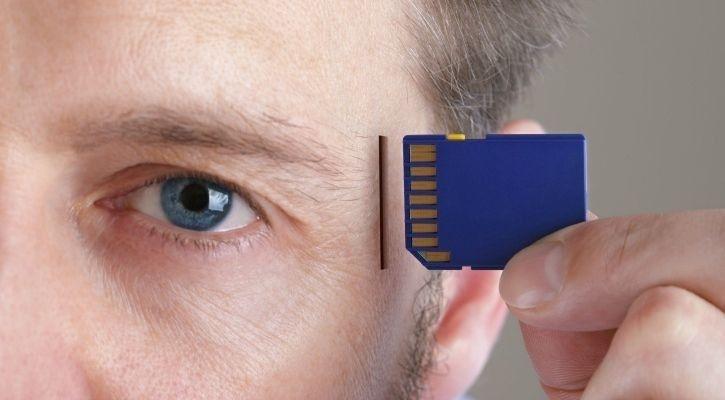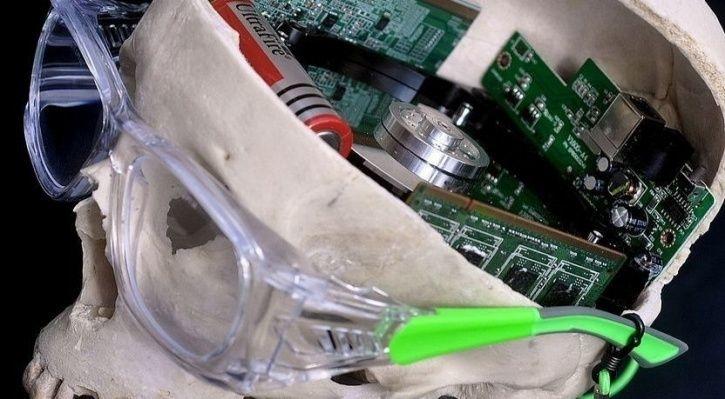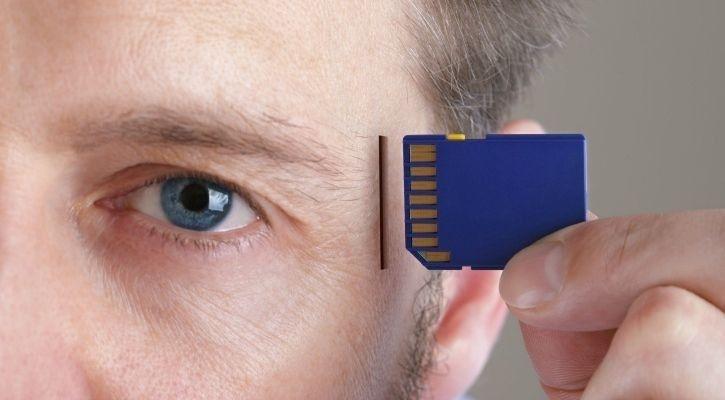Watch Out For Memory Theft, It's Not Just Science Fiction Anymore
Author - Nov 05, 2018

According to Kaspersky and Oxford University, soon hackers will be able to steal all of your memory and even build it, rewrite it or lock it.
- Man Got A Car Key Implant In His Hand To Unlock His Tesla Just By Waving
- With Brain Implants, Scientists Has Found A New Way To Treat Depression
Talking about the future, many scientists think that technology development will eventually lead to the integration between human and machine. However, as cool as it may sound, we should also consider the risks.

Kaspersky, in collaboration with Functional Neurosurgery Group of Oxford University, conducted an investigation into this issue and the result was indicated in Kaspersky’s latest report. The report mentions the potentials of memory implants to empower human brains, including saving memories in digital versions, directly interacting with devices or even using their processing power.
However, since the idea is so new and not fully developed, hence there haven’t been any rules or regulations over security being discussed. And though the security risks are still far in the future, the technology for exploiting such hardware exists already. Therefore, attackers can really sneak into our brains and steal data one day.
Oxford’s scientists have been doing research on the way memories are created by electrical impulses, and how to approach, restore and enhance them with brain stimulation devices. Those are Implantable Pulse Generators (IPGs), also known as neurostimulators, which send electrical impulses to particular targets inside the brain. Sometimes, these stimulators are used for Parkinson treatment or major depression as well as OCD treatment.

What should be noted is that the devices include software for both patients and physicians, and they install them on smartphones and tablets with connection through Bluetooth. This is where the problems arise.
Firstly, data are not encrypted, so hackers can intercept the data transfer and steal important information on the patient or even the hospital. Furthermore, they can change the device’s function, causing annoyance, pain or worse, paralysis to the patient. If other patients have implants connected to the same infrastructure, they will be affected too.
Another concern is that these implants are made for the patient’s safety rather than security, so they must be accessed easily in case of emergency. This leads to no passwords and a software backdoor, which means cracking into the system is such a piece of cake for attackers.
Last but not least, human is one risky factor. The University discovered that some hospitals don’t change the default password on their software links to the system, so programmers that create the software or anyone that is familiar with this technology can take advantage of the unchanged password.

Prepare yourself of the creepiest part, according to expert estimates, scientists are only five years away from the point where they can record the brain signals which build memories, then enhance or even rewrite memories before returning them into the brain. Experts believe that within a decade, there will be the first memory boosting implants sold on the market. Also, what threatens the neurostimulators will threaten these devices too. With IPGs, at least, attackers can only steal data on the patient’s sickness; but memory implants will expose the entire critical source of information about human.
It’s overwhelming just to think what hackers do to our memories: stealing passwords, confidential information to blackmail a person, or even ‘lock’ our memory in exchange for ransom.
Featured Stories

Features - Jan 29, 2026
Permanently Deleting Your Instagram Account: A Complete Step-by-Step Tutorial

Features - Jul 01, 2025
What Are The Fastest Passenger Vehicles Ever Created?

Features - Jun 25, 2025
Japan Hydrogen Breakthrough: Scientists Crack the Clean Energy Code with...

ICT News - Jun 25, 2025
AI Intimidation Tactics: CEOs Turn Flawed Technology Into Employee Fear Machine

Review - Jun 25, 2025
Windows 11 Problems: Is Microsoft's "Best" OS Actually Getting Worse?

Features - Jun 22, 2025
Telegram Founder Pavel Durov Plans to Split $14 Billion Fortune Among 106 Children

ICT News - Jun 22, 2025
Neuralink Telepathy Chip Enables Quadriplegic Rob Greiner to Control Games with...

Features - Jun 21, 2025
This Over $100 Bottle Has Nothing But Fresh Air Inside

Features - Jun 18, 2025
Best Mobile VPN Apps for Gaming 2025: Complete Guide

Features - Jun 18, 2025
A Math Formula Tells Us How Long Everything Will Live
Read more

ICT News- Feb 18, 2026
Google's Project Toscana: Elevating Pixel Face Unlock to Rival Apple's Face ID
As the smartphone landscape evolves, Google's push toward superior face unlock technology underscores its ambition to close the gap with Apple in user security and convenience.

Mobile- Feb 16, 2026
Xiaomi Launches Affordable Tracker to Compete with Apple's AirTag
For users tired of ecosystem lock-in or high prices, the Xiaomi Tag represents a compelling, no-frills option that delivers core functionality at a fraction of the cost.

Mobile- Feb 17, 2026
Anticipating the Samsung Galaxy S26 and S26+: Key Rumors and Specs
The Samsung Galaxy S26 series is on the horizon, sparking excitement among tech enthusiasts.
Comments
Sort by Newest | Popular